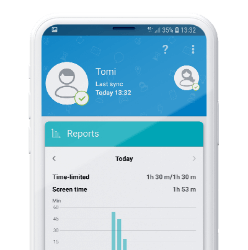How are my kids interacting with social media daily?
Trends are great until we fall for them.
In the age of social media, where images dominate our digital interactions, filters have become common tools for enhancing and altering our appearances. While these filters can be entertaining and seemingly harmless, they can have negative impacts on the viewer’s self-esteem and body image. Particularly viewers of a younger age, who may be more vulnerable to perceiving these curated images as ideals of how they should look and act. This article explores the dangers associated with the use of filters on social media platforms and how they may impact the mental well-being of the younger generation.
The filter phenomenon
Filters have become an integral part of the social media experience, allowing users to modify their facial features, skin tones, and body shapes in seconds. The allure of achieving flawless skin, bigger eyes, or a slimmer waist through a simple filter has captivated users, especially those younger and more impressionable, who are still developing their sense of self.
Unrealistic beauty standards
One of the primary dangers of filters lies in the display of unrealistic beauty standards. As users engage with filtered content daily, the line between reality and digitally altered images blurs. The consistent exposure to flawless, airbrushed appearances creates an unattainable ideal for young people, who may feel pressured to conform to these distorted standards. Read more about some of the trends and ideals that your children may be exposed to on social media.
A recent study found that 69% of parents with children under the age of 18 believed that image-altering features on social media negatively impact their children’s body image. The study even showed that half of the parents surveyed believed their child(ren)’s mental health had suffered in the past year because of this.
The constant comparison to digitally altered images can create feelings of inadequacy and fuel a negative view of one’s self, potentially leading to long-term consequences on mental well-being.
How can you support your child?
Social media platforms play a crucial role in shaping the narrative around body image. And with young people spending considerable amounts of time online, these platforms can significantly influence their thoughts and behaviours. If you think your child might be spending too much time online, this Internet Matters lesson provides a fun way to help them learn more about a healthy screen time balance.
Education on digital manipulation, media literacy, and the promotion of diverse representations of beauty can help empower young people to embrace who they are “IRL” (in real life). By helping your children build resilience against unrealistic standards, they can navigate their online worlds with less risk of damaging their body-image and self-esteem. You can help your child learn about this with our online lesson here.
Ensure your child knows that you are there as an open and non-judgmental person for them to turn to if they are struggling with their body image and what they see online. If you notice signs that something could be wrong, aim to start an open and honest conversation about it. Talk to them about how they are feeling and if there’s anything you can do to support them.
The widespread use of filters on social media creates a significant threat to the self-esteem and body image of young people. To support children as much as possible, parents, educators, and social media platforms must work together to collectively address this issue. By demonstrating a culture that celebrates authenticity and promotes positive body image, we can strive towards a healthier online environment for the younger generation.


With ESET Parental Control for Android
TRY FREE FOR 30 DAYSTrends are great until we fall for them.
In our present digital age, where social media platforms are a hub for connection, it's crucial to understand the implications of oversharing, particularly for our kids.
By sharing more we can prevent oversharing